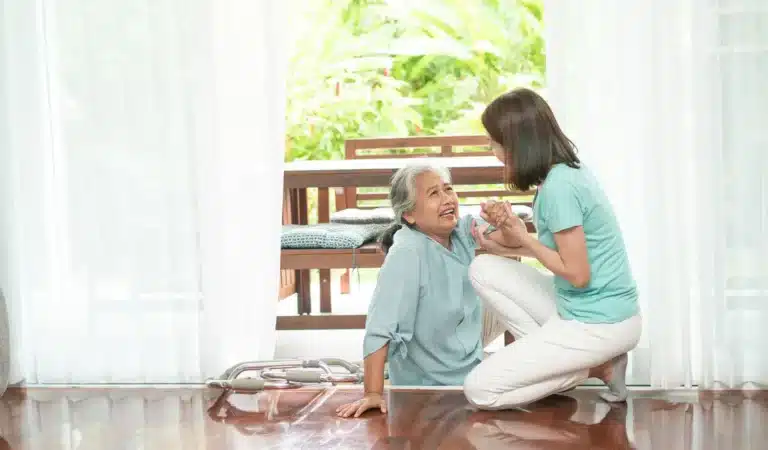Falls are one of the most common causes of injury among older adults, often leading to a loss of independence. While aging naturally brings changes in balance, vision, and strength, there are ways to reduce fall risks and maintain safety at home. With the support of companion care at home, seniors can navigate daily activities more safely while maintaining their independence.
Common Risk Factors for Falls
Several factors contribute to an increased risk of falls among seniors. Understanding these risks is the first step in creating a safer living environment.
1. Declining Balance and Mobility
As people age, muscle strength and coordination naturally decrease. This can make it harder to recover from a misstep or maintain stability when walking. Conditions such as arthritis or neuropathy can further affect mobility, making falls more likely.
2. Vision and Hearing Changes
Eyesight and hearing play a significant role in detecting obstacles and maintaining balance. Seniors with poor vision may struggle to see steps, uneven flooring, or misplaced objects. Hearing loss can also affect balance and awareness of their surroundings.
3. Medication Side Effects
Certain medications cause dizziness, drowsiness, or low blood pressure, all of which can increase the likelihood of a fall. Seniors who take multiple medications may experience side effects that make it difficult to stay steady on their feet.
4. Environmental Hazards
Many falls happen due to hazards inside the home. Loose rugs, cluttered walkways, poor lighting, and slippery floors all create dangerous conditions. A home that hasn’t been adapted for safety can put seniors at a higher risk of falling.
5. Chronic Health Conditions
Conditions such as diabetes, Parkinson’s disease, and osteoporosis can increase fall risk. Seniors who experience numbness in their feet, joint pain, or bone loss may be more vulnerable to losing balance or suffering a serious injury if they fall.
How to Reduce Fall Risks at Home
Making simple adjustments in the home can significantly decrease the likelihood of falls. A safer environment utilizing companion care at home gives seniors more confidence in their movements and allows them to maintain their independence.
- Improve Lighting – Well-lit rooms, nightlights in hallways, and easily accessible light switches can help prevent missteps in dim areas.
- Remove Hazards – Keeping floors free of clutter, securing rugs with non-slip pads, and rearranging furniture to create clear walkways can eliminate tripping hazards.
- Install Safety Features – Grab bars in bathrooms, handrails on stairways, and non-slip mats in bathtubs can provide extra stability where it’s needed most.
- Encourage Proper Footwear – Supportive, non-slip shoes reduce the risk of slipping on smooth surfaces. Seniors should avoid walking around in socks or loose slippers.
- Monitor Health and Medication Side Effects – Regular check-ups with a doctor can help identify medications or health issues that may contribute to dizziness or weakness.
How Companion Care at Home Helps Prevent Falls
Even with home modifications, some seniors may still feel unsteady or uncertain when moving around. Companion care at home offers an added layer of support, helping seniors feel safer while maintaining their independence.
- Assistance with Mobility – A caregiver can provide a steady hand when walking, standing up, or moving from room to room.
- Help with Daily Tasks – Simple activities like carrying groceries, reaching for items, or preparing meals can become fall risks. A caregiver can assist with these tasks to prevent unnecessary strain.
- Encouragement for Physical Activity – Staying active strengthens muscles and improves balance. Caregivers can support seniors in staying mobile with light exercise or guided movement.
- Medication Reminders – A caregiver can help ensure medications are taken correctly, reducing side effects that might contribute to dizziness or weakness.
- Companionship and Safety Monitoring – Having someone nearby offers peace of mind. If a senior starts feeling unsteady, a caregiver can provide immediate support.
Falls don’t have to be an inevitable part of aging. With the right precautions and support, seniors can continue living comfortably and safely in their own homes.


